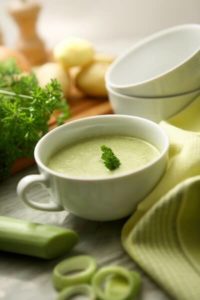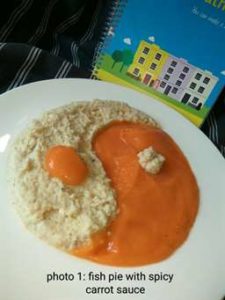
With that in mind, looking after our health is becoming more and more important. Though viruses and colds can affect us at any stage of our lives, the elderly are especially vulnerable, and may also need help with keeping up their vitamin intake.
Maintaining a healthy diet can be one of the easiest ways to preserve our health. And there plenty of other benefits as well. But let’s start with what healthy eating actually is.
What is a ‘healthy diet’?
When someone says you need to eat healthily, your first thought is probably eating more fruit, vegetables, and super-foods packed full of nutrients or anti-oxidants. While these are all parts of a healthy diet, there’s more to it than that.
Healthy, balanced diets bring together all the different food groups. That includes the ones we’re traditionally told are bad for us, like fats, though it’s important to keep these to a minimum where possible.
The Eatwell Guide is a good method to follow to make sure you’re getting enough of each food type and helps you plan your portions. It also shows you the areas where you could potentially cut back.
What a healthy diet means for the elderly

As we get older, it’s not uncommon for our diets to change. That might simply be down to changes in tastes or having issues digesting certain foods.
Generally, older people tend to have similar requirements for other ages, however the ability to absorb specific nutrients is affected by age, such as Vitamin B12. This can be found in meat, milk, and salmon amongst others.
And to maintain physical health, Vitamin C (which is found in many types of fruit and vegetables) is an effective antioxidant which can reduce the risk of viruses, and calcium is essential for maintaining healthy joints and muscles.
Another important nutrient for the elderly to maintain is iron, which has a number of important functions in the body, in particular forming red blood cells. Some of us are prone to iron deficiencies, but most of the time, we can get all the iron we need from foods like red meat, eggs, and wholegrain products.
Iron deficiencies can often be the first sign of a more serious health problem in people aged over 50 so making sure that the food we eat contains plenty of iron is of great importance.
Reducing the risk of developing specific conditions
Reducing the risk of developing specific conditions
The food we eat as a key role to play in reducing the risk of developing conditions such as dementia or Parkinson’s or experiencing a stroke. Though there are other steps we can take such as reducing alcohol intake, there are some foods which can increase the risk of developing these conditions.
According to the British Nutrition Foundation, the most common foods which are associated with a greater risk of stroke or high blood pressure are those high in salt and fat, and others which are low in Vitamin B. Diets which contain high levels of saturated fats and low levels of fibre also contribute significantly to the risk of cardiovascular disease or diabetes.
The British Nutrition Foundation also suggests that omega-3, which we can get from fish or supplements, may have a role in minimising the risk of dementia, though there’s more research to be carried out before a definitive answer can be made.
As a general rule of thumb, we tend to improve our dietary habits over the course of our lifetimes so by making some small changes to the types of food we eat and how much is in each portion, we can all take steps to ensure a healthy lifestyle as we get older.
Some recipe ideas for your cookbook
A healthy diet doesn’t mean that you have to go without your favourite treats and snacks. It just means being aware of what is in them, how we can the right amount of certain vitamins and being mindful of portion size.
Colds and viruses are especially strong during the winter months, and there’s always a temptation to reach for unhealthy ‘comfort foods’ but Age UK has put together a helpful guide to recipes to share with your elderly loved one during the colder months. And there are some other tasty-looking ideas here!
We’d love to hear some of your own ideas for eating healthily or helping an elderly loved one maintain a balanced diet. Or even better, your own signature dishes like these ones our carer Tony prepares for his customer.


